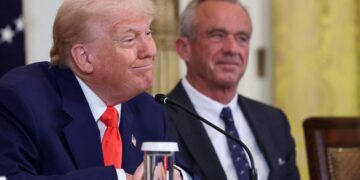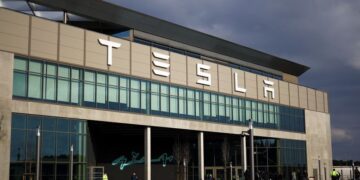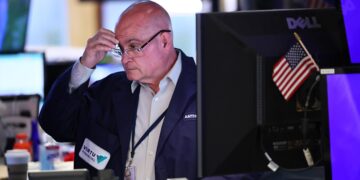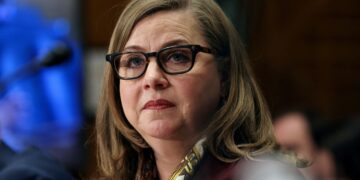It was a quiet start to a busy week, with two of the three main indexes snapping their daily win streaks.
Trade headlines continued to consume Wall Street’s attention, with the latest news centered on President Donald Trump’s proposed tariff on the entertainment industry.
Over the weekend, President Trump posted to Truth Social that he is considering a 100% tariff on movies that are made outside of the United States.
Sign up for Kiplinger’s Free E-Newsletters
Profit and prosper with the best of expert advice on investing, taxes, retirement, personal finance and more – straight to your e-mail.
Profit and prosper with the best of expert advice – straight to your e-mail.
While no specifics were given, Trump called the practice of producing movies overseas a national security threat, and said it is “messaging and propaganda!”
The news weighed on several entertainment stocks, including Netflix (NFLX, -1.9%), Paramount Global (PARA, -1.6%) and Roku (ROKU, -1.8%).
Buffett talks trade, retirement plans
Tariffs were a topic of discussion in Omaha, Nebraska, this weekend, where Berkshire Hathaway (BRK.B) CEO Warren Buffett gave his two cents on the issue.
“There’s no question that trade can be an act of war, and I think it’s led to bad things like the attitudes it’s brought out in the United States,” Buffett said at the start of the Q-and-A session of Berkshire’s annual shareholder meeting.
He added that we should encourage global trade, allowing the U.S. to “do what we do best,” and for other countries to “do what they do best.”
And we should not use trade as a weapon, Buffett advised. “The more prosperous the rest of the world becomes, it won’t be at our expense – the more prosperous we’ll become and the safer we’ll feel and your children will feel someday,” he said.
But Buffett’s views on trade were not the biggest news to come out of the yearly gathering. Rather, it was his unexpected announcement that he will be stepping down as CEO of Berkshire Hathaway at year’s end.
Greg Abel, chairman and CEO of Berkshire Energy and vice-chairman of Berkshire’s non-insurance operations, is widely expected to succeed Buffett as head of the holding company.
“Buffett leaves a company that is less reliant on his investing capabilities, with an array of leading businesses with strong cash flows,” says UBS Global Research analyst Brian Meredith.
The analyst doesn’t expect any major changes to the company’s operations and strategy.
And while it’s “hard to imagine anyone with the investing talents of Buffett, the structural advantages of ‘permanent capital’ and having the vast array of BRK’s business to gather information to aid investment decisions remains,” Meredith adds.
Berkshire’s Class B shares finished the day down 5.0%, making the holding company one of the worst S&P 500 stocks today.
Tyson Foods tumbles on top-line miss
BRK.B was joined at the bottom of the S&P 500 by Tyson Foods (TSN), which tumbled 7.8% after its fiscal second-quarter earnings reports.
For the three months ending March 29, the meat producer said earnings rose 48% year over year to 92 cents per share – more than analysts expected.
However, revenue was flat at $13.07 billion, falling short of Wall Street’s forecast. Tyson also left its outlook unchanged.
As for the main indexes, the Dow Jones Industrial Average slipped 0.2% to 41,218 and the S&P 500 fell 0.6% to 5,650 to snap their nine-day winning streaks. The Nasdaq Composite declined 0.7% to 17,844.
Fed meeting on deck
This week’s earnings calendar is jam-packed with noteworthy results, including those from chipmaker Advanced Micro Devices (AMD) and media and entertainment giant Walt Disney (DIS).
But the main event is the May Fed meeting, which concludes Wednesday afternoon.
Fed officials have made it clear that “they view the [current] policy stance as well-positioned to deal with the risks to the inflation and employment sides of their mandate,” says Marc Giannoni, chief U.S. economist at Barclays, and are “in no rush to adjust rates.”
He says that given the considerable economic and policy uncertainty Fed members are facing, they are “waiting for greater clarity on the evolution of the economy in coming months.
The economist expects both the FOMC statement and Fed Chair Jerome Powell “to acknowledge that some market- and survey-based measures of near-term inflation expectations have moved up” and that sentiment has declined.
Giannoni also expects Powell to note “that tariffs are likely to cause higher inflation and lower growth.”
He believes the Fed will keep rates unchanged this time around, but anticipates two quarter-point rate cuts by year’s end.



















